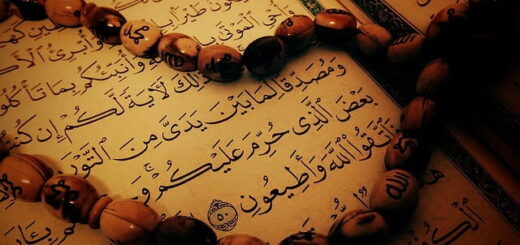Reminders from the Farewell Pilgrimage

Getting your Trinity Audio player ready...
|
The days of Dhul-Ḥijjah are blessed days, culminating in the day of ‘Arafah, followed by Eid ul-Adha. On the day of ‘Arafah it is worth reminding ourselves of what the Prophet Muḥammad (peace be upon him) mentioned this very day, which was also the day of his farewell pilgrimage. While the contents of the sermon he (peace be upon him) gave at the farewell pilgrimage are oft-repeated, how often is it that these words are seriously pondered over?
‘And you would be asked about me (on the Day of Resurrection), (now tell me) what would you say? They said: We will bear witness that you have conveyed (the message), discharged (the ministry of Prophethood) and given wise counsel. He (the Prophet) then raised his forefinger towards the sky and pointing it at the people (saying): ‘O Allah, be witness. O Allah, be witness,’ saying it thrice.
Therefore, let us take a few moments to ponder over some examples of what was mentioned that day:
Women
To protect, maintain and ensure the rights of women
Seeking to bar women from education or advancement; harming them or trying to keep them locked away, does not concord with the Prophetic instruction. In fact, abandoning the guidance of Islam for the ignorance of culture, doesn’t ensure the protection and maintenance of women’s rights. This is particularly important given that the Prophet (peace be upon him) expressly said: ‘Everything pertaining to the Days of Ignorance is under my feet, completely abolished.’
Usury
‘All claims to usury of the pre-Islamic period have been abolished. You shall have your capital sum, deal not unjustly and you shall not be dealt with unjustly.’
Why is it that despite this prohibition, which is outlawed explicitly in the Qur’ānic text (2: 278) does every “Muslim country” from Morocco to Indonesia have interest rates? Why is that each has a fiat-currency tied to these interest rates?
Sectarianism
‘Do not revert to disbelief after me by striking the necks of one another.’
Parts of the Muslim world are riven by sectarian conflict. At times that seems to border on outright bloodlust. For those who partake in that, or even support it from afar, do the words of the Messenger of Allah (peace be upon him) immediately spring to mind? Do those words not cause one to pause or even to rethink?

Racism
‘An Arab has no superiority over a non-Arab nor a non-Arab has any superiority over an Arab; the white has no superiority over the black nor does the black have any superiority over the white except by piety and good action.’
God-consciousness and good deeds are what carries a premium in this life and the next. No individual is raised in status because of their ethnicity or the colour of their skin. So are these words of the Prophet (peace be upon him) at the forefront of minds when the issue of marriage arises?
Guidance
‘I leave behind me two things, the Qur’ān and my example, the Sunnah; if you follow these you will never go astray.’
Can guidance be obtained by abandoning diligent study and observance of the Qur’ān and the Sunnah? Will clinging to that which the Qur’ān and the Sunnah expressly stands against result in success in this life and the hereafter? Does the soundbite of the ‘celebrity scholar’ mean more than the words of Allah and His Messenger (peace be upon him)?
One nation
‘O mankind there will be no Prophet after me and there will be no religious community (Ummah) after you.’
We are not a colour, neither are we a race. We are not made up of perpetually separate nationalities that are bound to artificial nation-states. We are the final Ummah, with the final blessed Messenger, who was sent as a mercy to mankind. That’s the responsibility we carry. That is what we must return and properly adhere to.
وأطيعوا الله والرسول لعلكم ترحمون وسارعوا إلى مغفرة من ربكم وجنة عرضها السماوات والأرض أعدت للمتقين
And obey Allah and the Messenger that you may be shown mercy, and vie with one another, hastening to forgiveness from your Lord, and to a garden whose breadth is as the heavens and earth, prepared for the god-fearing. [Qur’ān, 3: 132/133]


